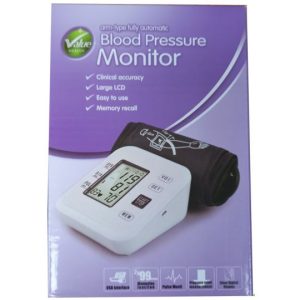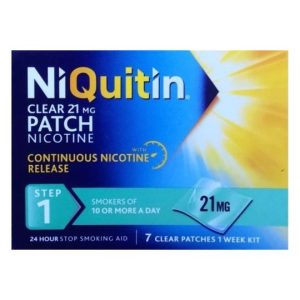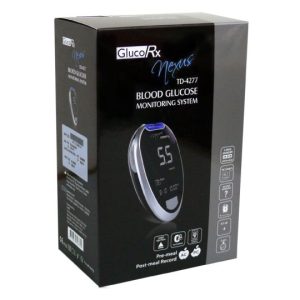Chemist.net Cookie Policy : We use cookies to enhance your user experience. To find out more please view our cookie policy
Understanding Vascular Disease: Prevention for a Healthier Tomorrow

Our cardiovascular system is a complex network of blood vessels that play a crucial role in supplying oxygen and nutrients to every part of our body. When this intricate system faces complications, it can lead to vascular diseases, which are conditions that affect the blood vessels. These diseases can be silent but deadly, making awareness and prevention essential. In this blog, we'll delve into what vascular disease is and explore effective strategies for prevention.
What is Vascular Disease?
Vascular disease is a broad term that encompasses various conditions that affect the blood vessels, including arteries, veins, and capillaries. These diseases can obstruct or weaken blood vessels, leading to serious health issues. The two most common types of vascular disease are:
- Peripheral Artery Disease (PAD): This condition involves the narrowing of arteries, typically in the legs, due to the build-up of fatty deposits (atherosclerosis). PAD can lead to reduced blood flow, causing leg pain, cramping, and even tissue damage in severe cases.
- Aneurysms: Aneurysms occur when a weak spot in an artery causes it to balloon outwards. If an aneurysm ruptures, it can result in life-threatening internal bleeding.
Apart from these, vascular diseases also encompass conditions like deep vein thrombosis (DVT), varicose veins, and venous insufficiency.
Preventing Vascular Disease
Preventing vascular disease is not only about maintaining heart health but also ensuring the well-being of your entire circulatory system. Here are some pro-active steps you can take to reduce your risk:
Adopt a Heart-Healthy Diet:
- Eat More Fruits and Vegetables: A diet rich in fruits and vegetables provides antioxidants, vitamins and fibre that promote vascular health.
- Reduce Saturated and Trans Fats: Limit your intake of saturated and trans fats found in fried foods, processed snacks, and fatty cuts of meat.
- Choose Whole Grains: Opt for whole grains like brown rice, whole wheat bread, and quinoa over refined grains.
- Control Salt Intake: High sodium intake can raise blood pressure, increasing the risk of vascular disease. Aim to consume less than 2,300 milligrams of sodium per day.
Regular Exercise
- Engaging in regular physical activity helps maintain a healthy weight, lowers blood pressure, and improves overall cardiovascular health.
- Aim for at least 150 minutes of moderate-intensity aerobic exercise or 75 minutes of vigorous-intensity exercise per week.
Stop Smoking
- Smoking is a significant risk factor for vascular disease. If you smoke, seek assistance to quit immediately. Shop now for aids to stop smoking.
Control Blood Pressure
- High blood pressure can damage blood vessels. Regularly monitor your blood pressure and take prescribed medications if necessary. Shop for blood pressure monitors now.
Manage Cholesterol Levels
- High cholesterol can lead to atherosclerosis. Maintain healthy cholesterol levels through diet and, if needed, medication.
Maintain a Healthy Weight
- Being overweight or obese increases the risk of vascular disease. Achieve and maintain a healthy weight through a balanced diet and regular exercise.
Manage Diabetes
- Uncontrolled diabetes can damage blood vessels. Keep your blood sugar levels in check through diet, exercise, and medication as prescribed by your doctor. Shop for diabetes care now.
Limit Alcohol Consumption
- Excessive alcohol consumption can contribute to high blood pressure and other health problems. If you drink, do so in moderation.
Stay Hydrated
- Drinking plenty of water supports healthy blood circulation and helps prevent blood from becoming too thick.
Regular Check-ups
- Regular medical check-ups can help detect and manage risk factors like high blood pressure and high cholesterol early. If you're aged 40 to 74, make sure you go to your free NHS Health Check if you're eligible. If you're over 18 consider joining the free Our Future Health project. When you join you will be offered information about your own health, including your blood pressure and cholesterol levels and in the future you will also be offered information about your risk of some diseases.
Conclusion: Vascular disease is a silent threat that can have devastating consequences. However, with proactive lifestyle changes and regular medical check-ups, you can significantly reduce your risk. Remember, prevention is the best medicine when it comes to vascular disease, and the choices you make today can lead to a healthier and more vibrant tomorrow. Prioritise your vascular health, and you'll be on the path to a longer, more fulfilling life.


